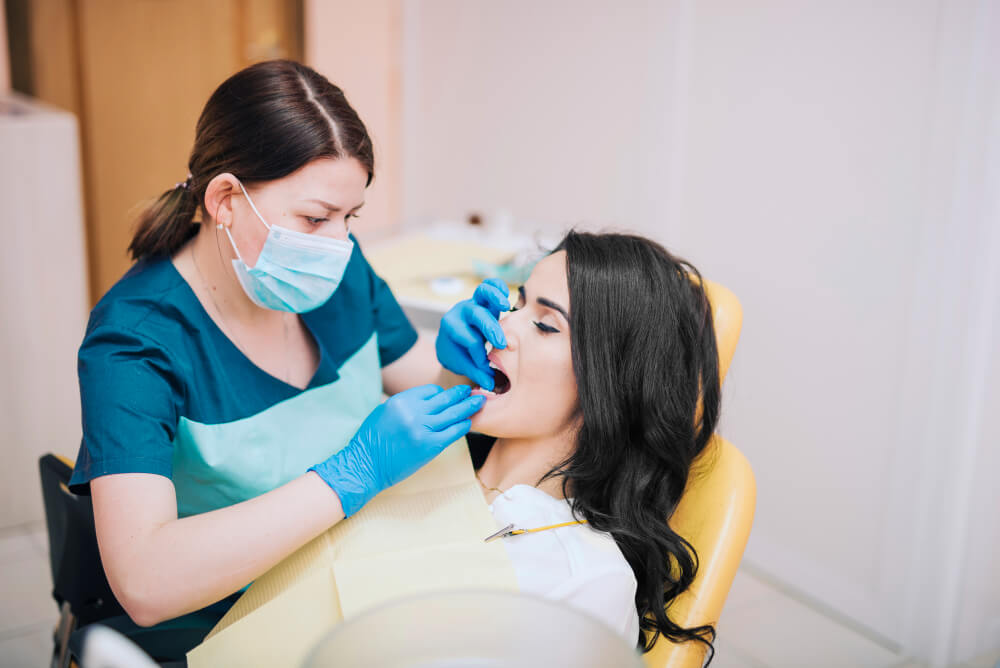
Dry mouth and bad breath are common issues that many people experience at some point in their lives. These conditions can affect your confidence and comfort, and understanding their causes can help you find effective solutions. In this comprehensive guide, we’ll delve into the widespread reasons for dry mouth and bad breath, explore their impact on oral health, and provide practical tips for prevention and treatment. For those seeking solutions, Dental Treatment in Mt Vernon, NY, offers specialized care to address these concerns and improve your overall oral health.
What is Dry Mouth?
Definition and Symptoms
Dry mouth, or xerostomia, occurs when your salivary glands don’t produce enough saliva to keep your mouth adequately moist. Saliva plays a crucial role in maintaining oral health—it helps with the digestion of food, protects your teeth from decay, and keeps your mouth comfortable. When you experience dry mouth, you might notice symptoms such as:
- A sticky, dry feeling in your mouth
- Difficulty swallowing or speaking
- A sore throat or dry, cracked lips
- Changes in taste or a burning sensation in the mouth
- Bad breath or halitosis
Common Causes of Dry Mouth
- Medications
Many prescription and over-the-counter medications can lead to dry mouth as a side effect. Common culprits include:
- Antihistamines: Often used for allergies, these can reduce saliva production.
- Antidepressants: Certain antidepressants can affect the salivary glands.
- Painkillers and Opioids: These medications can reduce saliva flow.
- High Blood Pressure Medications: Some can impact salivation.
If you suspect your medication is causing dry mouth, consult your healthcare provider. They may be able to adjust your medication or suggest alternatives.
- Dehydration
Not drinking enough fluids can lead to dehydration, which reduces saliva production. Dehydration can result from:
- Inadequate Fluid Intake: Not drinking enough water throughout the day.
- Intense Physical Activity: Excessive sweating without adequate rehydration.
- Illness: Fever, vomiting, or diarrhea can contribute to dehydration.
Ensure you’re drinking enough water daily, especially if you’re active or ill.
- Medical Conditions
Certain medical conditions can impact saliva production, including:
- Diabetes: High blood sugar levels can lead to dry mouth.
- Parkinson’s Disease: This neurological disorder can affect salivary gland function.
- Stroke: A stroke can impair the nerves that stimulate saliva production.
- Sjogren’s Syndrome: An autoimmune disorder that specifically targets the salivary and tear glands.
If you have a medical condition that might be causing dry mouth, managing the condition with your healthcare provider’s help is essential.
- Mouth Breathing
Breathing through your mouth, especially while sleeping, can lead to dry mouth. This habit can be due to:
- Nasal Congestion: Allergies or sinus infections that block nasal passages.
- Chronic Sinusitis: Long-term inflammation of the sinuses.
Using a humidifier or nasal sprays can help alleviate congestion and reduce mouth breathing.
What Causes Bad Breath?
Definition and Impact
Bad breath, or halitosis, is an unpleasant odor coming from your mouth. It can be socially awkward and affect your self-esteem. Bad breath can result from various factors, including:
- Poor Oral Hygiene: Inadequate brushing and flossing allow food particles to remain in your mouth. These particles can decay and produce foul-smelling compounds. Plaque buildup on your teeth and gums also harbors bacteria that contribute to bad breath.
- Food Choices: Certain foods, such as garlic, onions, and spicy dishes, contain compounds that are absorbed into your bloodstream and then released through your breath. These compounds can linger even after eating.
- Smoking and Tobacco Use: Tobacco products cause bad breath and damage your gums, stain your teeth, and reduce your ability to taste. Quitting tobacco is crucial for improving oral health and breath freshness.
- Dental Problems: Conditions like tooth decay, gum disease, and oral infections can lead to bad breath. If you have dental issues, visiting a Dental treatment in Mt Vernon, NY, at Aurora Smiles is important for treatment and prevention.
- Dry Mouth: As mentioned earlier, a lack of saliva can contribute to bad breath. Without adequate saliva, food particles and bacteria are not efficiently washed away.
Underlying Health Conditions
In some cases, bad breath may signal a more serious health issue, such as:
- Digestive Problems: Issues like gastroesophageal reflux disease (GERD) can cause bad breath due to stomach acids backing up into the esophagus.
- Kidney Disease: Kidney problems can result in a distinct, unpleasant odor on the breath.
- Liver Disease: Liver dysfunction can lead to a breath odor that resembles musty or ammonia-like smells.
How to Prevent and Treat Dry Mouth and Bad Breath
Prevention Tips
- Maintain Good Oral Hygiene
- Brushing: Brush your teeth twice a day with fluoride toothpaste. Use a soft-bristled brush to avoid damaging your gums.
- Flossing: Floss daily to remove food particles and plaque from between your teeth.
- Mouthwash: Use an antibacterial mouthwash to kill bacteria and freshen your breath.
- Stay Hydrated
Drinking plenty of water helps keep your mouth moist and supports overall health. Aim to drink at least 8 glasses of water a day, and more if you’re active or in hot climates. - Chew Sugar-Free Gum
Chewing sugar-free gum stimulates saliva production, which can help alleviate dry mouth and bad breath. Look for gum containing xylitol, which has additional oral health benefits. - Avoid Tobacco Products
Quitting smoking and other tobacco products improves your oral health and reduces bad breath. Tobacco cessation resources are available to help you quit. - Regular Dental Checkups
Regular visits to a Dentist in Mt Vernon, NY, are crucial for maintaining good oral health. Your dentist can identify and treat dental problems that might contribute to dry mouth and bad breath.
Treatment Options
- Saliva Substitutes
If you have dry mouth, saliva substitutes and oral moisturizers can provide temporary relief. These products mimic natural saliva and help keep your mouth moist. - Medications
If medications are causing your dry mouth, your healthcare provider might adjust your dosage or recommend alternatives. Always discuss any side effects with your doctor. - Dental Treatments
If dental problems are causing bad breath, a Dentist in Mt Vernon, NY, can offer treatments such as:- Fillings: To address tooth decay.
- Deep Cleanings: To treat gum disease.
- Gum Therapy: To manage gum infections and inflammation.
- Medical Evaluation
Persistent dry mouth or bad breath that doesn’t improve with home remedies may indicate an underlying health issue. A thorough medical evaluation can help diagnose and treat any underlying conditions.
Conclusion
Dry mouth and bad breath are common issues that can significantly impact your comfort and confidence. By understanding their causes and implementing preventive measures, you can effectively manage these conditions. Maintaining good oral hygiene, staying hydrated, and seeking professional care are key steps in improving your oral health. For personalized solutions and expert care, visit Aurora Smiles for Dental Treatment in Mt Vernon, NY. Your oral health is important, and with the right care, you can enjoy a fresher breath and a healthier mouth.
